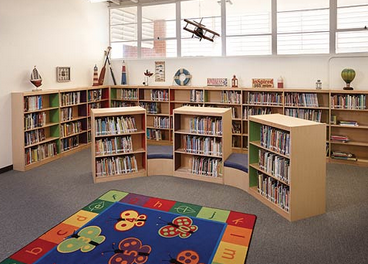Previously published by CBC online November 21, 2021

By Jim Silver
Although Bill 64 has been abandoned, the provincial government will soon have another go at reforming K-12 education. What should they do?
Poverty is the number one cause of poor educational outcomes for children. Far too many children in Manitoba are growing up in families that are living in poverty—87,730 children, in fact, based on the most recent data from 2018. Manitoba Centre for Health Policy studies conclude that “socioeconomic status is the single most powerful predictor of educational outcomes.” In Winnipeg, for example, high school graduation rates in the lowest income quintile are roughly half those in the highest income quintile. This pattern, wrote two scholars of education, “has been found in virtually every important study of these issues, over time, in every country where such studies have been conducted.”
These consistent, global findings—that poverty causes poor educational outcomes—should be at the forefront of the provincial government’s thinking when they replace Bill 64.
Two cost effective ways of reducing poverty and thus improving school outcomes are early childhood education and adult education. Here’s why.
The proposed new universal, affordable and much expanded childcare program, which has been signed on to in principle by the Province of Manitoba and for which the federal government has committed funding, will produce meaningful benefits for thousands of working families in Manitoba.
It can also, if thoughtfully designed, become a major anti-poverty strategy.
The significant expansion of childcare spaces will create increased demand for ECE workers. This creates the opportunity to design ECE training programs specifically tailored to meet the needs of people who are currently living in poverty. Red River College is well placed to take a lead role in this, and there has been much success in Winnipeg’s inner city with such programs. If this were done, many people would be able to move from being precariously employed, or not employed at all, to holding a full-time job as an early childhood educator at a wage that lifts them out of a life of poverty. This is especially the case since the proposed ECE program includes a commitment to higher wages for ECE workers. When parents who have been struggling move into useful, well-paid jobs with benefits, children’s lives are stabilized, and they are much more likely to do well at school.
This will be especially so if care is taken to ensure that sufficient numbers of ECE centres are located in low-income areas, so that they are easily accessible by the children of low-income parents, and by those parents themselves, many of whom can take advantage of the specially tailored training programs to become decently paid early childhood educators.
An attractive feature of seeing early childhood education as an anti-poverty strategy is that the economics make sense for Manitoba. The federal government is committed to investing a major share of the cost, and the evidence shows that dollars invested in ECE produce economic benefits greater than the cost of the investment, primarily because so many women are able to enter the paid labour force.
The provincial government should also commit to expanding adult education, funding for which has declined for years. As a result, the numbers graduating from adult learning centres with their mature grade 12 certificate have declined significantly. The same is the case for adult literacy programming. Adult education is treated as an afterthought in Manitoba, the poor second cousin of K-12 education and post-secondary education. In 2019/20, expenditure on adult education was a mere two-thirds of one percent of the province’s total education budget.
Yet there is very strong evidence that adult education changes peoples’ lives, enabling them to improve their self-confidence and self-esteem, and in a great many cases to enter the paid labour force, or to qualify for better paid jobs. When this happens families are strengthened, and children in healthier, more stable families do better in school. If improving children’s school outcomes is a goal of educational reform, then beefing up our currently meagre investment in adult education is a means to that end.
Thoughtful design of the ECE program soon to be rolled out, and enhanced investment in Manitoba’s now small but effective adult education program, will produce benefits for many Manitobans, generating broad public support. They will also improve children’s education outcomes, because they will address the greatest impediment to success in school—poverty.
Jim Silver is Professor Emeritus at the University of Winnipeg and a Research Associate with the Canadian Centre for Policy Alternatives Manitoba Office.


